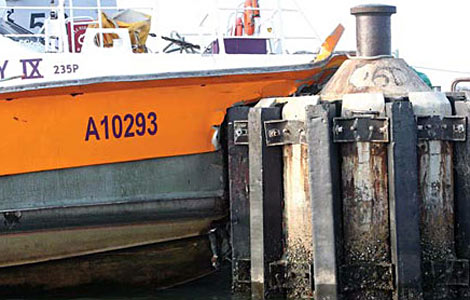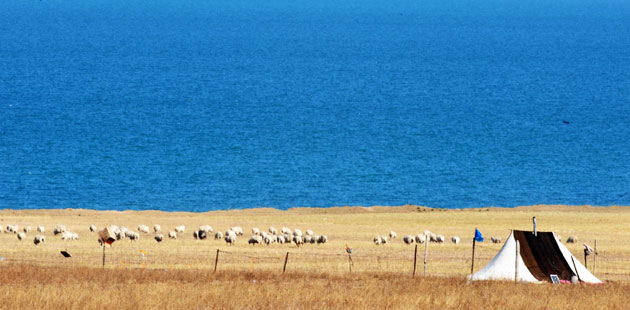Polluting plant hasn't resumed: officials
Updated: 2011-10-22 10:13
By Zhao Yinan and Guo Anfei (China Daily)
|
|||||||||||
KUNMING - Officials denied on Friday that a plant that had been ordered to close after killing dozens of farm animals with pollution has resumed operations. The statement came in response to suspicions that the operation had reopened in late September.
The plant, now processing the waste, has suspended its production since August, as instructed by the Ministry of Environmental Protection, said Quan Ende, deputy head of the publicity department in Qujing city of Southwest China's Yunnan province.
Quan said the company started detoxifying hazardous chromium residue in late September and will begin operations in a second waste processing facility in the first half of 2012.
"About 150,000 tons of chromium residue can be detoxified by the end of next year," he said.
Chang Cheng, an official with Friends of Nature, an environmental protection organization, verified during an inspection of the plant that the detoxification process was under way.
"As far as I know, part of the facility is to process the waste, and other parts to manufacture vitamins, but none of them is to produce chromium," he said.
Chang said the situation in Qujing is still "disturbing", adding that the waste has been piled here and there without guarding against seepage and has thus threatened water and soil.
"Residents dug a new well to replace the polluted one," he said. "And most farmers have begun planting corn, instead of the wheat that they used to, because it is used to feed pigs instead of people."
Previously, more than 5,000 tons of chromium compound, a highly toxic heavy metal, and waste from the chemical plant were dumped in three townships in Qujing, killing 77 sheep and endangering thousands of residents.
Chromium residue is a hazardous waste material generated during the production of chromium and chromium salt.
The plant is located along the Nanpan River, the headwaters of the Pearl River, which provide drinking water for residents along the lower reaches.
After the dumping, five people were arrested, and the Friends of Nature filed a lawsuit against the plant, demanding it make restitution for the losses and establish a compensation fund.
Quan also said the authorities have been monitoring the water quality of the Pearl River and the result is published online every day.
"Water quality has remained within normal safety levels, and we are also working on a gauging system to test the soil conditions," he said. A large vegetable supplier, Qujing provides about 4,000 tons of vegetables annually to Hong Kong consumers.
Related Stories
Chemical plants threaten environment of bay 2011-09-01 07:40
BlueStar launches pollution-free chromium project 2007-09-24 21:50
Hot Topics
Libya conflict, Gaddafi, Oil spill, Palace Museum scandal, Inflation, Japan's new PM, Trapped miners, Mooncake tax, Weekly photos, Hurricane Irene
Editor's Picks

|

|

|

|

|

|







